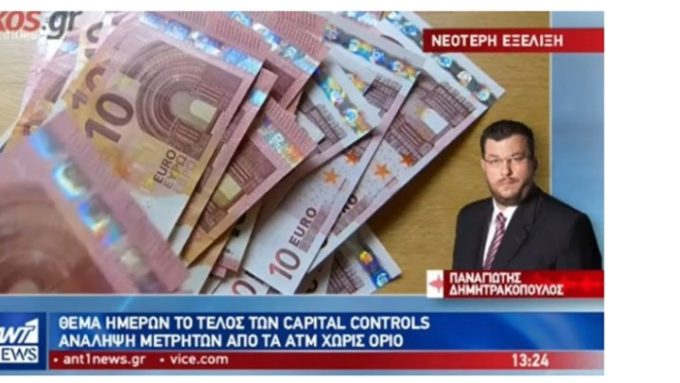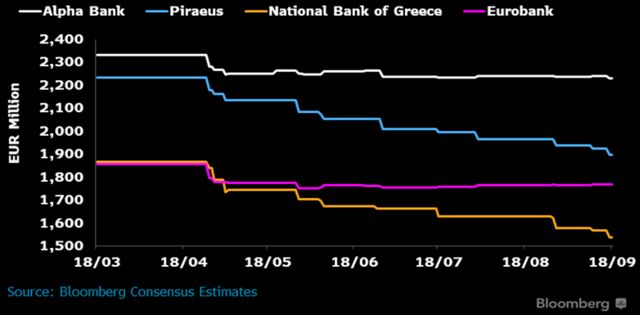Σε ξεπούλημα των προϊόντων της προχωρά η Folli Follie σε μια προσπάθεια να μαζέψει ρευστό. Η χειμαζόμενη αλυσίδα, στελέχη της οποίας δήλωσαν πρόσφατα στο δικαστήριο πως οι πωλήσεις της πάνε καλά, “τρέχει” το διάστημα αυτό δεκαήμερο προσφορών σε συγκεκριμένες κατηγορίες προϊόντων σε όλα τα καταστήματα του δικτύου της.
Οι εκπτώσεις αγγίζουν το 80% της αρχικής τιμής ενώ δεν αποκλείεται το συγκεκριμένο δεκαήμερο να πάρει παράταση προκειμένου να ξεπουλήσει όσα περισσότερα εμπορεύματα μπορεί. Οι τελικές τιμές, μετά την προσφορά ξεκινούν από τα 20 ευρώ για τα γυαλιά ηλίου και τα 40 ευρώ για τσάντες, όταν οι αρχικές τιμές ξεπερνούν κατά πολύ τα 100 ευρώ το τεμάχιο.
Η κίνηση αυτή της χειμαζόμενης αλυσίδας σχετίζεται με την άμεση ανάγκη που έχει να αποκτήσει ρευστό. Η εταιρεία για να παραμείνει ζωντανή, ήτοι να αγοράζει εμπόρευμα από τους προμηθευτές της χρειάζεται 15 εκατ. ευρώ μηνιαίως, όπως έχουν αναφέρει στελέχη της. Και αυτό γιατί οι βασικοί προμηθευτές της έχουν απαιτήσει την προπληρωμή των εμπορευμάτων τους, (σ.σ. πριν δηλαδή την παράδοσή τους, όταν τοποθετούνταν η εκάστοτε παραγγελία). Κάτι που έχει συμπιέσει τα ταμειακά της διαθέσιμα, με “απρόβλεπτες συνέπειες για το άμεσο μέλλον όπως αναφέρεται στην αίτηση υπαγωγής της στο άρθρο 106α.
Στην αίτηση σημειώνεται επίσης πως η εταιρεία, σύμφωνα με το ισοζύγιο 31/5/2018, διαθέτει χρηματικά διαθέσιμα ποσού 86,383 εκατ. ευρώ, οι απαιτήσεις που διατηρεί έναντι τρίτων ανέρχονται σε δεκάδες εκατομμύρια ευρώ (σ.σ. δεν τις προσδιορίζει) ενώ τα προϊόντα που βρίσκονται στα καταστήματα λιανικής ή στις αποθήκες ανέρχονται στο ποσό των 78 εκατ. ευρώ.
Στοιχεία που μένει να επιβεβαιωθούν ή όχι από τους ελέγχους που “τρέχουν” η Ernst & Young LPP, η Alvarez and Marshal LLP και η Deloitte. Η Ernst & Young διενεργεί ειδικό έλεγχο στα στοιχεία των ενοποιημένων οικονομικών της καταστάσεων για το οικονομικό έτος 2017: ταμειακά διαθέσιμα και ταμειακά ισοδύναμα, εμπορικές απαιτήσεις, εμπορικές και άλλες υποχρεώσεις και άλλα τρέχοντα στοιχεία του ενεργητικού που προώθησε σε προμηθευτές για αποθεματικούς σκοπούς.
Η Alvarez and Marshal LLP, “τρέχει” από τις 25 Ιουνίου, τη δικανική – εγκληματολογική αξιολόγηση (forensic evaluation) των πιο πρόσφατων οικονομικών καταστάσεων των ασιατικών θυγατρικών της, ενώ 15μελής ομάδα της Deloitte, έχει αναλάβει να εκτιμήσει τα περιουσιακά στοιχεία της εταιρείας και των θυγατρικών.
Πηγή: capital.gr








